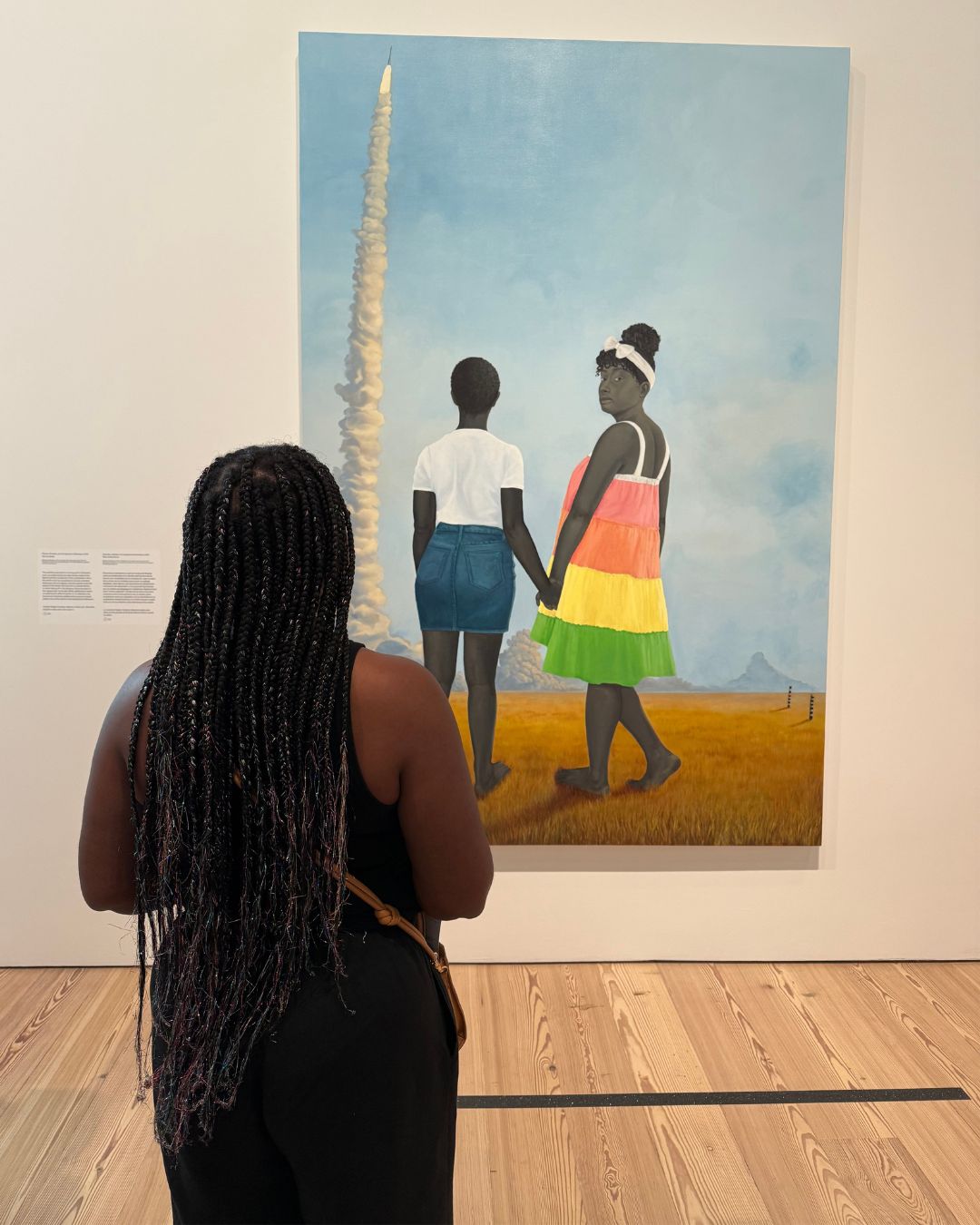I've been a conscientious parent for 15 years. That means I've thought critically about how I'm developing my kids - not just keeping them alive and fed, but fostering them into healthy, happy, whole human beings who will someday become whole adults. I've made intentional choices about how to shape their emotional worlds, their sense of self, their relationship to joy.
So imagine my confusion when, on a walk with my daughter the other day, I found out that she's been criticized throughout her school journey for ::checks notes:: smiling too much.
Smiling. Too much.
Not for talking back, not for disrupting class, not for any of the things that might actually warrant correction. She's been told, repeatedly, across years and teachers and hallways, that the problem is her face. That the issue is joy.
My daughter is a dancer. I watch her on stage and I see her shine with this ease that looks like she was born in the spotlight. Her face tells the story before her body does. She's expressive, magnetic, fully present in her performance. And when I see her in that space, I know - I know - that this is who she is. Not a role she's playing. Not a mask she puts on. Just her.
And then she tells me that in the other world, the one where I'm not present, people see the same light and call it a problem. She's not performing in those hallways. She's just walking to class. Being herself. The same girl who lights up the stage, except now there's no applause - just correction.

Amy Sherald, Mother and Child (2016). Oil on canvas, 54 × 43 × 2 1/2 in. From Amy Sherald: American Sublime at the Whitney Museum of American Art, New York.
She didn't seem hurt when she told me. That's what got me. She said it like it was just information, another quirky thing about school, no big deal. But I was the one who couldn't let it go. Because I know exactly what they're doing. I've lived it.
I have a gap in my teeth. Had it my whole life. And when I was young, that gap became the thing I learned to hide. Kids and family teased me for it - not constantly, not dramatically, but enough. Enough that I learned to smile with my mouth closed. Enough that I learned to cover my mouth when I laughed. Enough that big, open joy became something I edited in real time.
I'm 40 now. I step in front of the camera as The Charm City Maven - this woman who's supposed to be magnetic, visible, out loud. And every single time, I have to push past that old voice that says my smile is wrong. That my laugh is too much. That the gap is something to apologize for. I still feel it. The anxiety. The impulse to make myself smaller. I work hard to override it, but it's there. It's always there.

Amy Sherald, It Made Sense… Mostly in her Mind (2011). Oil on canvas. From Amy Sherald: American Sublime at the Whitney Museum of American Art, New York.
So when my daughter tells me she's been told she smiles too much, I'm not just hearing about her experience. I'm watching her walk into the same trap that caught me. Except she's still shining. She hasn't dimmed herself yet. She's 15 and she still walks through hallways the same way she moves across a stage - unapologetically bright.
And that's the thing that's sitting in my chest. She has what I spent decades fighting to reclaim. I gave that to her. While still carrying the wound myself.
There's a particular kind of pain in learning that your child needed defending in moments you didn't even know were happening. For years, in all those hours she was out of my sight, teachers and peers have been telling her that her joy is inappropriate. That her natural brightness is somehow wrong. That she should tone it down, dial it back, make herself less.
I know what they're doing because they did it to me. They're teaching her that taking up space with happiness is a problem. That her face - the literal expression of who she is - needs correction. That being fully herself is too much for other people to handle.
This is how they get us. Not all at once. Not with one big devastating moment. Just a steady drip of "you're too much" until you learn to be less. Until you internalize that your joy is a burden to others. Until you start editing yourself before anyone even asks.
And this is what makes this so hard: I'm not standing on the other side of this fight saying "I conquered this, here's the blueprint." I'm in it. Still weathered. Still anxious. Still working to give myself permission to smile without apology. Every time I show up visible as The Charm City Maven, I'm pushing past the voice that learned to hide. I'm doing the work in real time.
And somehow, while doing all that, while still bleeding from my own version of this, I managed to raise a daughter who doesn't have that wound yet. Who walks down hallways like it's her birthright to take up space with joy. Who hasn't learned to make herself smaller.
That's the inheritance. Not "I figured it out so you won't have to struggle." The inheritance is: I see them trying to do to you what they did to me, and I'm not letting it land the same way. You get to keep your light. Even while I'm still learning to fully claim mine.
But I'm terrified. Because I know how much it costs to refuse to shrink. I know what it takes to keep shining when the world keeps telling you you're too bright. I've been doing it for 40 years and I'm tired. And now I'm watching my daughter walk into the same system, and I can't shield her from every hallway comment, every raised eyebrow, every teacher who thinks joy needs managing.
What I can do is this: I can refuse to let her internalize it the way I did. I can name it as the problem they have, not the problem she is. I can model pushing past the old voice even when it's hard. I can show her that you don't have to be on the other side of the fight to still fight. You just have to keep refusing to dim.
The truth is, they're not trying to correct her behavior. They're uncomfortable with her power. A 15-year-old Black girl who walks through the world smiling like she owns it? That's not a discipline problem. That's a threat to people who need her to be smaller.
I think I finally understand why my own mom used to tell me “They’re just jealous” She knew.
And I know this because I've been her. I've been the woman who smiles "too much," who maintains joy despite circumstances, who refuses to perform the diminishment others expect. I've spent my whole life being told that my light is inappropriate to the moment. That I should be more serious, more subdued, more palatable.
Here's what I know now that I didn't know when I was covering my mouth to hide the gap in my teeth: the gap is where the light comes through. The smile isn't the problem. Their discomfort with it is.
So I'm teaching my daughter what I'm still teaching myself: your joy is not up for debate. Your light is not a problem to solve. And when they tell you you're too much, what they're really saying is they're not enough to hold it.
I'm breaking this cycle while still bleeding from it. I'm giving her what I'm still learning to fully claim for myself. And maybe, that's the realest inheritance of all - not the finished product, but the refusal to quit. The steadfastness. The commitment to not shrinking, even when staying big is hard.
She's going to keep smiling. And I'm going to keep pushing past the old voice that says I shouldn't. And maybe one day, we'll both just smile without thinking about it at all.
But for now, we're carrying it together. The knowledge that our own joy makes people uncomfortable. The decision to shine anyway. The cost of refusing to dim.

